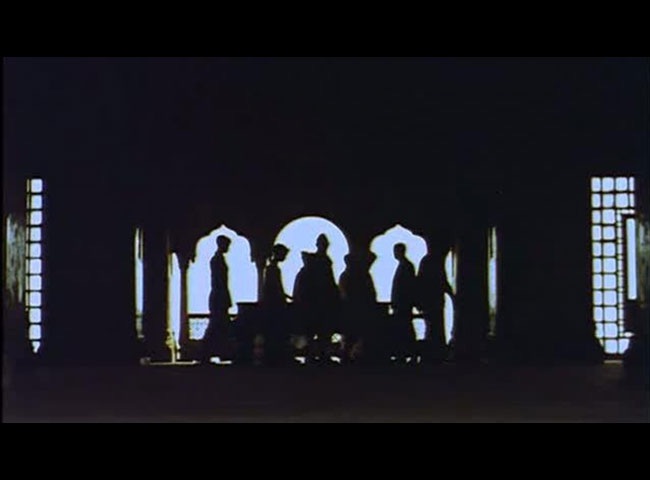The Delhi Way
-
Réalisé par James Ivory • Écrit par James Ivory
-
États-Unis • 1964 • 45 minutes • Couleur
- Réalisation :
James Ivory - Écriture :
James Ivory - Assistanat de réalisation :
Toon Ghose - Image :
James Ivory - Montage :
James Ivory - Musique originale :
Ustad Vilayat Khan, Ustad Shantaprasad
- Production (structure) :
Asia Society, James Ivory - Ayant droit :
Asia Society, James Ivory
- N° ISAN :
non renseigné
Résumé
Documentaire sur Delhi dans lequel on découvre à la fois la vie quotidienne et le passé d'une ville marquée successivement par la présence afghane, moghole et britannique.
La projection à New York de son documentaire The Sword and the Flute vaut à James Ivory une bourse, qu’il utilise pour tourner un court métrage sur Dehli. Véritable cartographie de la mégapole, The Dehli Way évoque par petites touches les invasions successives, le quotidien des habitants, les conflits culturels, le déracinement. Autant de sujets qui annoncent les thématiques ivoryennes, et que le cinéaste développe avec humour et humanité, vitalité et poésie, jouant même avec Shakespeare dans une mise en abime audacieuse. Une méditation sur le temps qui passe, à savourer simplement, comme le recommande la bande annonce d’époque : "Don’t ask what it means. Just see the picture"…
The Delhi Way - produced, written, photographed, and directed by Ivory--was begun before The Householder but completed after it. A documentary of Delhi, it scans the city's historic past that includes successive Afghan, Moghul, and English invasions, while it reveals its variegated life of the present. At the opening a train moves along a landscape in darkness to evoke (as in a film by Ray) the passage of time; and past and present are thereafter anchored in contrasting views of Shah Jahan's Red Fort and King George V's new capitol. The film, in which time has a devouring quality, is impressionistic as it takes in the new capital. An army of civil servants in white garments ride to work on bicycles, while an anonymous beggar sits nodding by a roadside tree; an upper-middle-class flower show on the grounds of a private club appears side by side with views of dust storms, constricted slum dwellings, crowded bazaars, and posters of Indian film idols. Ivory evokes the bewildering legacy of Delhi, and the film acts as an effective bridge to Shakespeare Wallah, in which time and change are central concerns.
Mot(s)-clé(s) thématique(s)
Comment avoir accès au film ?
-
Édition DVD
- Il n'existe pas d'édition DVD à notre connaissance
-
Accès VOD
- Il n'existe pas d'accès en VOD à notre connaissance
- Distribution
- Aide sur les moyens d'accéder à un film
